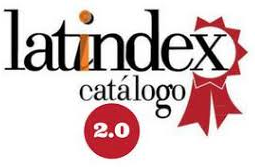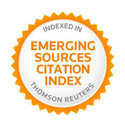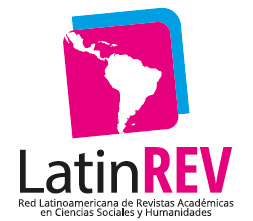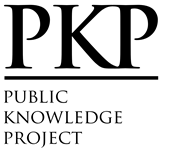O papel dos líderes religiosos no marketing social e a sua relevância para a concretização dos Objetivos de Desenvolvimento Sustentável (ODS)
Resumo
O marketing social, como uma extensão do marketing (uma ciência comportamental que tenta explicar as relações de intercâmbio - neste caso, quando o produto é uma ideia ou causa social), pode ser uma ferramenta fundamental para alcançar os ODS propostos na Agenda 2030 da ONU, porque procura o bem comum, contribui para a mudança social e melhora o bem-estar e a qualidade de vida das pessoas.
No entanto, para que as campanhas e intervenções de marketing social sejam bem-sucedidas, é importante identificar o contexto cultural e os líderes de opinião (em particular os líderes religiosos, que têm um papel especial a desempenhar devido à sua influência nas respetivas comunidades).
Assim, este artigo centra-se na reflexão e na exploração do papel dos líderes religiosos no marketing social. Através de um estudo exploratório, foram identificados diferentes casos, de diferentes partes do mundo, em que os líderes religiosos influenciaram, positiva ou negativamente, a causa social promovida ou o comportamento procurado. Por fim, foi apresentada uma proposta de design para o planeamento de uma campanha de marketing social com recurso a líderes religiosos.
Desta forma, este artigo pretende servir de exemplo de como as ciências comportamentais e as crenças religiosas podem não só ser compatíveis como até complementares (neste caso, no contexto do marketing social).
Downloads
Referências
ACNUR España. (13 abril de 2021). Líderes religiosos de todo el mundo se unen para ayudar a abordar el desplazamiento forzado. https://www.acnur.org/es-es/noticias/historias/lideres-religiosos-de-todo-el-mundo-se-unen-para-ayudar-abordar-el.
Ali, M. y Ushijima, H. (2005). Perceptions of me non role of religious leaders in reproductive health issues in rural Pakistan. Journal of Biosocial Science, 37(1), 115-122. https://doi.org/10.1017/S0021932003006473.
Alves, H. y Galan-Ladero, M. M. (2019). Theoretical Background: Introduction to Social Marketing. En Galan-Ladero, M. M. y Alves, H. (Eds), Case Studies on Social Marketing. A Global Perspective (pp. 1-10). Springer.
Alves, H., Galan-Ladero, M. M., Rivera, R. G. (2021). Theoretical Background: Social Marketing and Quality of Life. En Galan-Ladero, M. M. y Rivera, R. G. (Eds), Applied Social Marketing and Quality of Life. Applying Quality of Life Research (pp. 3-25). Springer. https://doi.org/10.1007/978-3-030-83286-5_1.
Andreasen, A. R. (1994). Social marketing: Its definition and domain. Journal of Public Policy & Marketing, 13(1), 108-114.
Anshel, M. H. y Smith, M. (2014). The role of religious leaders in promoting healthy habits in religious institutions. Journal of Religion and Health, 53(4), 1046-1059. https://doi.org/10.1007/s10943-013-9702-5.
Arli, D., Gupta, N., Sardana, D. y Sharma, P. (2023). Demystifying the evaluation of brands endorsed by religious Leaders in the emerging markets. International Marketing Review, 40(1), 155-175. https://doi.org/10.1108/IMR-08-2021-0258.
Asekun-Olarinmoye, I. O., Asekun-Olarinmoye, E. O. y Fawole, O. I. (2013). Perceptions and activities of religious leaders on the prevention of HIV/AIDS and care of people living with the HIV infection in Ibadan, Nigeria. HIV/AIDS - Research and Palliative Care, 5, 121-129. https://doi.org/10.2147/HIV.S42959.
Barro, A. y Bado, A. R. (2021). Religious Leaders’ Knowledge of Family Planning and Modern Contraceptive Use and Their Involvement in Family Planning Programmes in Burkina Faso: A Qualitative Study in Dori in the Sahel Region. Open Access Journal of Contraception, 12, 123-132. https://doi.org/10.2147/OAJC.S315395.
Basil, D. Z., Diaz-Meneses, G. y Basil, M. D. (2019). Social Marketing in Action. Cases from Around the World. Springer.
Bonoma, T. V. y Zaltman, G. (1978). The Science of Marketing, and Marketing as Science: Editors’ Introduction. American Behavioral Scientist, 21(4), 471-478.
Boyer, C., Paluck, E. L., Annan, J., Nevatia, T., Cooper, J., Namubiru, J., Heise, L. y Lehrer, R. (2022). Religious leaders can motivate men to cede power and reduce intimate partner violence: Experimental evidence from Uganda. Proceedings of the National Academy of Sciences of The United States of America, 119(31). https://doi.org/10.1073/pnas.2200262119.
Chitsime, A., Ndovi, V., Machewere, Z., Mang’ando, A., Maziya, C., Rodriguez, K. y Boyle, J. (2024). Chapter 19: The Influence of Celebrities and Religious Leaders in Addressing Rumours on Social Media. En Lewis, M., Govender, E. y Holland, K. (Eds), Communicating COVID-19 (pp. 371-389). Palgrave Macmillan. https://doi.org/10.1007/978-3-031-41237-0_19.
Cohen-Dar, M. y Obeid, S. (2017). Islamic Religious Leaders in Israel as Social Agents for Change on health-Related Issues. Journal of Religion and Health, 56(6), 2285-2296. https://doi.org/10.1007/s10943-017-0409-x.
Dodd, W., Brubacher, L. J., Speers, S., Servano, D., Go, D. J. y Lau, L. L. (2023). The contributions of religious leaders in addressing food insecurity during the COVID-19 pandemic in the Philippines: A realist evaluation of the Rapid Emergencies and Disasters Intervention (REDI). International Journal of Disaster Risk Reduction, 86, 103545. https://doi.org/10.1016/j.ijdrr.2023.103545.
Downs, J. A., Mwakisole, A. H., Chandika, A. B., Lugoba, S., Kassim, R., Laizer, E., Magambo, K. A., Lee, M. H., Kalluvya, S. E., Downs, D. J., Fitzgerald, D. W. (2017). Educating religious leaders to promote uptake of male circumcision in Tanzania: a cluster randomized trial. Lancet, 389(10074), 1124-1132. http://dx.doi.org/10.1016/S0140-6736(16)32055-4.
Endeshaw, M., Alemu, S., Andrews, N., Dessie, A., Frey, S., Rawlins, S. Walson, J. L. y Rao, D. (2017). Involving religious leaders in HIV care and treatment at a university-affiliated hospital in Ethiopia: Application of formative inquiry. Global Public Health, 12(4), 416-431. https://doi.org/10.1080/17441692.2015.1069868.
Fahed, Z. y Abboud, S. (2022). Human Rights and Interreligious Dialogue: The Role of Religious Leaders in Freedom of Expression-The Case of the North of Lebanon since 2014. Religion & Human Rights, (1), 23-48. https://doi.org/10.1163/18710328-BJA10024.
Faster Capital. (2024a). Marketing religioso: cómo respetar y dar cabida a las diferentes religiones y creencias en sus esfuerzos de marketing. https://fastercapital.com/es/contenido/Marketing-religioso--como-respetar-y-dar-cabida-a-las-diferentes-religiones-y-creencias-en-sus-esfuerzos-de-marketing.html#Comprender-la-diversidad-de-religiones-y-creencias.
Faster Capital. (2024b). Líderes comunitarios. El papel de los líderes comunitarios en el fomento del cambio social.
Fitz Herbert, A. L., Rivera, R., Ketelhohn, F. y Elsdon-Baker, F. (2023). Conflict narrative, stigmatisation and strategic behaviour of religious scientists in the Argentinean scientific field. Acta Sociologica, 67(2), 149-163. https://doi.org/10.1177/00016993231173292.
French, J. y Gordon, R. (2020). Strategic Social Marketing: For Behaviour and Social Change (2a ed.). SAGE Publications.
French, J. y Russell-Bennett, R. (2015). A hierarchical model of social marketing. Journal of Social Marketing, 5(2), 139-159. https://doi.org/10.1108/JSOCM-06-2014-0042.
Galan-Ladero, M. M. y Alves, H. (2019). Case Studies on Social Marketing. A Global Perspective. Springer.
Galan-Ladero, M. M. y Alves, H. (2023). Theoretical Background: Social Marketing & Sustainable Development Goals (SDGs). En Galan-Ladero, M. M. y Alves, H. (Eds), Social Marketing and Sustainable Development Goals (SDGs). Case Studies for a Global Perspective (pp. 1-24). Springer.
Galan-Ladero, M. M. y Galera-Casquet, C. (2019). Capítulo 11: Marketing para el cambio social. En Cerdá, L. M. y Ramírez, M. (coord.), Fundamentos para un nuevo marketing (pp. 251-284). Sindéresis.
Girls Not Brides. (21 de julio de 2017). ¿Pueden los líderes religiosos ser nuestros mejores aliados para terminar con el matrimonio infantil? https://www.girlsnotbrides.es/articulos/can-religious-leaders-best-allies-end-child-marriage/.
Harun-Or-Rashid, M., Yoshida, Y., Rashid, M. A., Nahar, S. y Sakamoto, J. (26 de septiembre de 2011). Perceptions of the Muslim religious leaders and their attitudes on herbal medicine in Bangladesh: a cross-sectional study. BMC Research Notes, 4(366). https://doi.org/10.1186/1756-0500-4-366.
Hastings, G. y Domegan, C. (2018). Social Marketing: Rebels with a Cause (3a ed.). Routledge.
Hicken, A., Jones, P., Menon, A. y Rozek, L. S. (2024). Can endorsement by religious leaders move the needle on vaccine hesitancy? Vaccine, 42(4), 918-923. https://doi.org/10.1016/j.vaccine.2024.01.009.
Hull, S. (2013). A holistic single-case study of how religious leaders influence members’ development of multicultural appreciation (disertación / tesis). University of Phoenix.
Hunt, S. D. (1983). General Theories and the Fundamental Explananda of Marketing. Journal of Marketing, 47(4), 9-17.
International Social Marketing Association, European Social Marketing Association y Australian Association of Social Marketing. (2017). Social Marketing Definition. https://europeansocialmarketing.org/social-marketing/.
Jones, P. y Menon, A. (2022). Trust in Religious Leaders and Voluntary Compliance: Lessons from Social Distancing during COVID-19 in Central Asia. Journal for the Scientific Study of Religion, 61(3-4), 583-602.
KAICIID Dialogue Centre. (2014). Media WISE: Empowering Responsible Religious Leadership in the Digital Age. Media and Information for Religious Leaders. King Abdullah Bin Abdulaziz International Centre for Interreligious and Intercultural Dialogue.
Kotler, P. y Lee, N. (2005). Corporate social responsibility. Wiley.
Kotler, P. y Lee, N. (2008). Social marketing influencing behaviors for good (3a ed.). SAGE Publications.
Kotler, P. y Zaltman, G. (1971). Social marketing: An approach to planned social change. Journal of Marketing, 35(July), 3-12.
Krstanoska-Blazeska, K., Thomson, R. y Slewa-Younan, S. (2021). Mental Illness Stigma and Associated Factors among Arabic-Speaking Religious and Community Leaders. International Journal of Environmental Research and Public Health, 18(15), 7991. https://doi.org/10.3390/ijerph18157991.
Lambert, V. J., Kisigo, G. A., Nzali, A., Laizer, E., Paul, N., Walshe, L., Kalokola, F., Okello, E. S., Sundararajan, R. y Mwakisole, A. H. (2021). Religious Leaders as Trusted Messengers in Combatting Hypertension in Rural Tanzanian Communities. American Journal of Hypertension, 34(10), 1042-1048. https://doi.org/10.1093/ajh/hpab080.
Lanfer, H. L., Rossmann, C. y Kargbo, S. I. (2023). Exploring the Contextual Factors of Religious Leader Participation in Health Communication: Evidence from a Qualitative Study in Sierra Leone. Journal of Religion & Health, 62(3), 1695-1715. https://doi.org/10.1007/s10943-022-01632-3.
Lee, N., Kotler, P. y Colehour, J. (2024). Social Marketing: Behavior Change for Good (7a ed.). Sage.
Lohiniva, A. L., Nurzhynska, A., Alhassan H., Shetye, M. y Ayiku, P. (2022). Understanding Factors Influencing Polio Vaccine Uptake in Ghana-Developing Meaningful Community Mobilization and Engagement Strategies in Collaboration with Religious Leaders. The American Journal of Tropical Medicine and Hygiene, 107(6), 1345-1350. https://doi.org/10.4269/ajtmh.22-0271.
Lozano Bielat, H. (2015). The transnational religious leader, regime change, and state sovereignty: The unlikely case comparison of Pope John Paul II and Abdullah Yusuf Azzam (disertación PhD). Graduate School of Arts and Sciences, Boston University.
Lyons, P., Winters, M., Zeebari, Z., Schmidt-Hellerau, K., Sengeh, P., Jalloh, M. B., Jalloh, M. F. y Nordenstedt, H. (2021). Engaging religious leaders to promote safe burial practices during the 2014-2016 Ebola virus disease outbreak, Sierra Leone. Bulletin of the World Health Organization, 99(4), 271-279. https://doi.org/10.2471/BLT.20.263202.
Manns, A. (2022). Perspectives of Religious Faith Leaders on Hate Crime Policies. Ph.D. Walden University. Walden Dissertations and Doctoral Studies. 13547. https://scholarworks.waldenu.edu/dissertations/13547/.
Moliner Tena, M. A. (1998). Marketing Social: La Gestión de las Causas Sociales. ESIC.
Mwakisole, A. H., Lambert, V. J., Nzali, A., Aristide C., Laizer, E., Cordeiro, A. A., Gregory, L., Mwakisole, N., Nicol C. E. W., Paul, N., Kalluvya, S. E., Kihunrwa, A., Downs, D. J., Wamoyi, J., Downs, J. A. y Lee, M. H. (2023). Partnerships with religious leaders to promote family planning in rural Tanzania: an open-label, cluster randomized trial. The Lancet. Global Health, 11(12), E1943-E1954. https://doi.org/10.1016/S2214-109X(23)00453-9.
Naciones Unidas. (25 de septiembre de 2015). La Asamblea General adopta la Agenda 2030 para el Desarrollo Sostenible. https://www.un.org/sustainabledevelopment/es/2015/09/la-asamblea-general-adopta-la-agenda-2030-para-el-desarrollo-sostenible/.
Naciones Unidas. (2022). La Agenda para el Desarrollo Sostenible. https://www.un.org/sustainabledevelopment/es/development-agenda/.
Naciones Unidas. (2024). The 17 Goals. https://sdgs.un.org/goals.
Nasir, J. A. y Hinde, A. (2011). Factors associated with contraceptive approval among religious leaders in Pakistan. Journal of Biosocial Science, 43(5), 587-596. https://doi.org/10.1017/S0021932011000216.
Nteta, T. M. y Wallsten, K. J. (2012). Preaching to the Choir? Religious Leaders and American Opinion on Immigration Reform. Social Science Quarterly, 93(4), 891-910.
Quintanilla, I., Berenguer, G. y Díaz, R. (1988). Problemas y desafíos del marketing social. Esic Market, 61, 137-151.
Rahman, N. F. A., Hambali, K. M. K., Awang, J., Yaakob, Z. y Shapiee, N. S. (2020). Understanding Other Religions as Basic of Religious Tolerance: The Aim and the Term from Religious Leaders perspective in Malaysia. Akademika, 90(2), 165-179.
Rodríguez Pretel, D. (21 de marzo de 2024). Gambia podría convertirse en el primer país del mundo en revertir la prohibición de la ablación. Onda Cero. https://www.ondacero.es/noticias/gambia-podria-convertirse-primer-pais-mundo-revertir-prohibicion-ablacion_2024032165fc18ba09990300013b71a7.html.
Ruijs, W. L., Hautvast, J. L., Kerrar, S., Van der Velden, K. y Hulscher, M. E. (2013). The Role of Religious Leaders in Promoting Acceptance of Vaccination within a Minority Group: A Qualitative Study. BMC Public Health, (13), Article No. 511.
https://doi.org/10.1186/1471-2458-13-511.
Santesmases, M. (1999). Marketing. Conceptos y Estrategias. Pirámide.
Schmidtke, D. J., Kubacki, K. y Rundle-Thiele, S. (2021). A review of social marketing interventions in low-and middle-income countries (2010-2019). Journal of Social Marketing, 11(3), 240-258.
Shaluhiyah, Z., Suryoputro, A. y Indraswari, R. (2023). Factors influencing men’s involvement in maternal and child health: men’s experiences and religious leader’s support in Central Java, Indonesia. Journal of Health Research, 37(5), 349-355. https://doi.org/10.56808/2586-940X.1047.
Schoenberg, N. E. y Swanson, M. (2017). Rural Religious Leaders' Perspectives on their Communities' Health Priorities and Health. The Southern Medical Journal, 110(7), 447-451. https://doi.org/10.14423/SMJ.0000000000000671.
Suleman, M. (2019). Views of Muslim Religious Leaders on Violence against Married Women (tesis de doctorado). University of Johannesburg. https://hdl.handle.net/10210/411224.
Toni-Uebari, T. K. y Inusa, B. P. D. (2009). The role of religious leaders and faith organisations in haemoglobinopathies: a review. BMC blood disorders, 9, Article No. 6. https://doi.org/10.1186/1471-2326-9-6.
Topfer, J. (2023). Religion, subjectivity, and societal structure: politics and society according to religious leaders in Slovenia. Journal of Southeast European and Black Sea Studies, 23(3), 1-18. https://doi.org/10.1080/14683857.2022.2073673.
Torabi, M. y Noori, S. M. (2019). Religious Leaders and the Environmental Crisis: Using Knowledge and Social Influence to Counteract Climate Change. The Ecumenical Review, 71(3), 344-355. https://doi.org/10.1111/erev.12434.
UN Women Pakistan. (20 de diciembre de 2018). #StopJahezkhori. Facebook. https://www.facebook.com/photo.php?fbid=1868632433265907&id=1016540021808490&set=a.1023751464420679.
Vega-Gomez, F. I. y Galan-Ladero, M. M. (2019). The Role of Social Marketing in a Controversial Cause: The Eradication of Child Marriage. En Galan-Ladero, M. M. y Alves, H. (Eds), Case Studies on Social marketing (pp. 135-148). A Global Perspective. Springer.
Williams, J. T. B. y O’Leary, S. T. (2019). Denver – Religious Leaders' Vaccine Attitudes, Practices, and Congregational Experiences. Journal of Religion and Health, 58(4), 1356-1367. https://doi.org/10.1007/s10943-019-00800-2.
Zakar, R., Zakar, M. Z. y Krämer, A. (2011). Spousal Violence against Women in the Context of Marital Inequality: Perspectives of Pakistani Religious Leaders. International Journal of Conflict and Violence, 5(2), 372-284.
Copyright (c) 2025 M. Mercedes Galan-Ladero

This work is licensed under a Creative Commons Attribution-NonCommercial-ShareAlike 4.0 International License.
Os autores detêm os direitos autorais e garantem à revista o direito de ser a primeira publicação do trabalho. Caso uma tradução do artigo já publicado na Austral Comunicación possa ser publicada em outra revista, solicita-se registrar a publicação original na versão traduzida.
A licença utilizada é CC BY-NC-SA, que permite compartilhar (copiar e redistribuir o material em qualquer meio e formato) e adaptar (remixar, transformar e construir sobre o material) nos seguintes termos: atribuição (reconhecer a autoria) e não comercial (o material não pode ser usado para fins comerciais). Atualização: 1 de fevereiro de 2022.
A Austral Comunicación permite ao (s) autor (es) reter os direitos de publicação sem restrições.











































